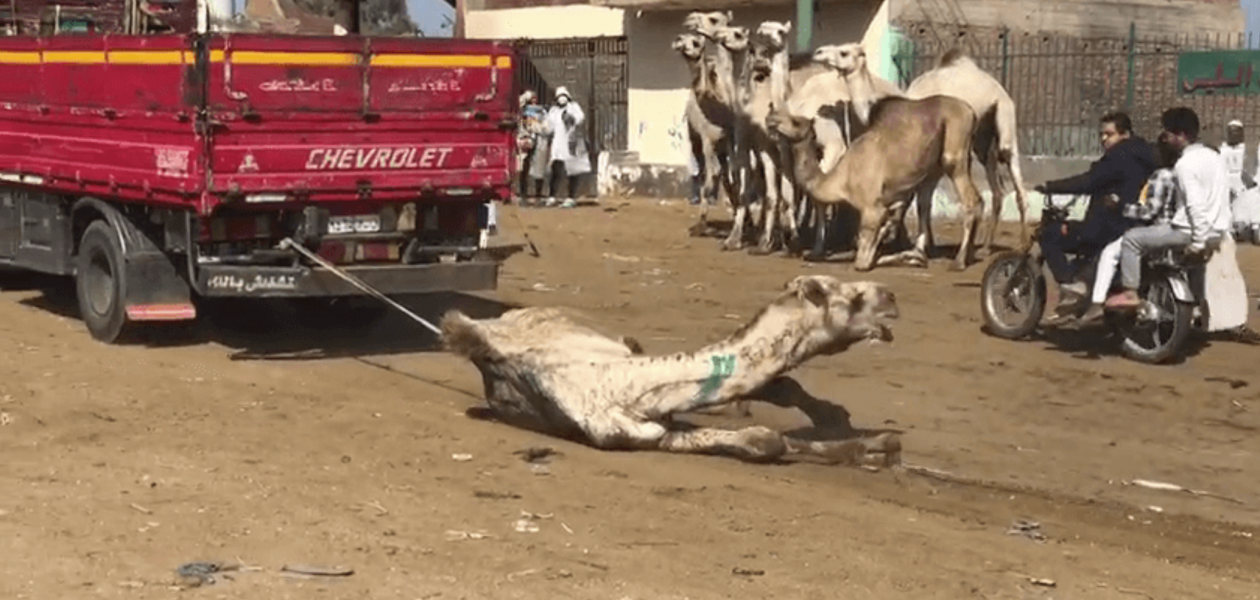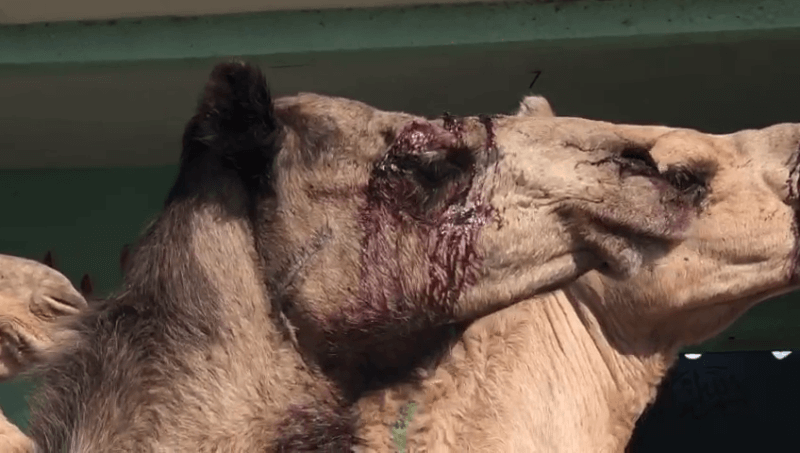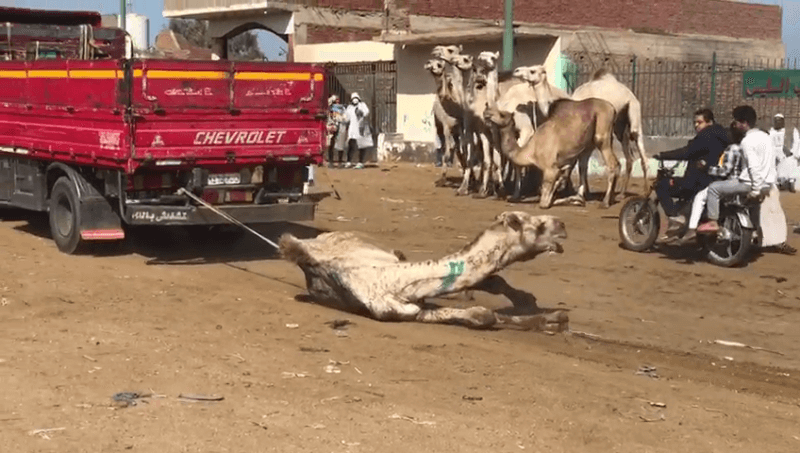
At the famous Birqash camel market, the largest in Egypt, PETA Asia has once again obtained footage of the horrific abuse of camels being sold for their meat, for agricultural labor, or for use on the greatest tourist attractions.
This market is chaotic, noisy and dusty. After being taken there in a crowded truck on a terrifying and exhausting journey, the dromedaries are forcibly unloaded and then bought, sold and bartered.
The trainers carry sticks and systematically beat the dromedaries, sometimes leaving them with bloody wounds. The legs of the animals are tied, which prevents them from moving. A dromedary was even tied to the back of a truck and dragged along a street without anyone intervening.
As explained in a previous PETA Asia survey , many camels bought at the Birqash market end up in Egypt's greatest historical sites like the Cheops pyramid or the Saqqara necropolis to take tourists on a ride. And they don't even have the right to a pension after this life of servitude. Once they are too exhausted to continue the walks, they are sent back to the market to be slaughtered.

Shocked and appalled tourists
Traveler review sites are full of comments from visitors denouncing the mistreatment of camels and horses they have witnessed:
- “I travel the world and have witnessed animal abuse, but what I saw at the pyramids was by far the worst. If you plan to go there start by finding out about it. I wish I had done it before. Horses and camels work in deplorable conditions in the heat, without water, without rest, and beaten. »
- “Injured camels, forced to work without being able to hydrate properly. I'm really not convinced. We reported it and the staff ignored us. »
- “Disappointing animal protection for camels and horses; they are skeletal under their covers. Don't ride these poor animals, it's animal abuse. »
- “These poor horses and camels are beaten for anything and everything. »
- “We didn't ride camels or horses after seeing the way they were treated, because we didn't want to contribute to this abuse. The poor animals have to work until exhaustion, it hurts the heart. »
International travel blogger Ric Gazarian puts it this way:
Hundreds and hundreds of dromedaries are piled up in this dusty market. PETA would freak out seeing that, because animals aren't treated any better than a used car. All dromedaries have a leg attached to prevent them from running away. It looks painful. The men and little boys sit casually on the animals, sipping their iced tea as they would if they were leaning against an old car. And the merchants have it easy. The camels were constantly beaten.
Due to the many reports of animal mistreatment, the Lonely Planet tourist guide advises against visiting the Birqash camel market.

Egypt's empty promises
In the past, footage from PETA Asia and legal aid from SPARE led to the arrest of three camel traders , and Ahmed Rashed, the governor of Giza, had surveillance cameras installed. He promised to educate traders on how to care for animals properly and pledged to ensure that a fully equipped veterinary unit is present in the market to care for sick animals. However, PETA Asia continues to receive similar images of abuse in the Birqash camel market, so the governor's efforts are clearly a failure. We are again asking him to make the surveillance videos available online.
Tourists fuel camel abuse
It is the tourists who maintain this cruel cycle. By paying to ride animals, they directly contribute to their suffering. Wherever you go, don't force animals on your vacation.
What you can do:
Never ride a camel, horse, cart or elephant, and do not have yourself or your belongings carried by a donkey.
Ask the Egyptian Minister of Tourism to put an end to this mistreatment by banning the use of camels on these sites:
Posted on 2023-03-30 13:56









Comments